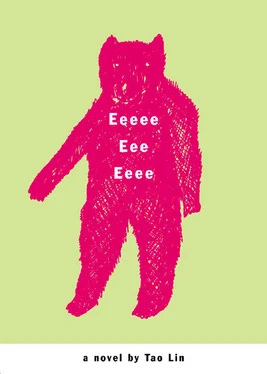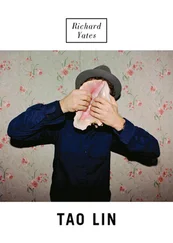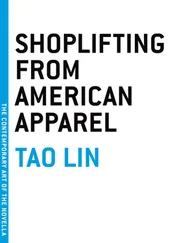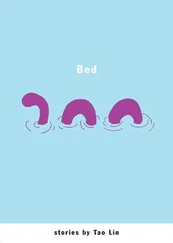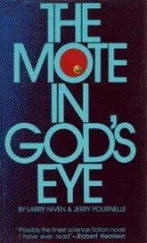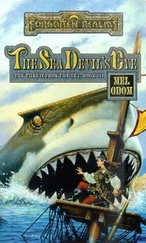“I don’t know,” Mark said. “I wouldn’t put it above them. Or below them. Whatever.”
“They have one song where he’s like, ‘Jesus loves you,’ or something.”
“No,” Mark said. “That’s someone else.”
“Oh,” Andrew said. “Who?”
“I don’t know,” Mark said.
Andrew picked up the hot pepper. He felt tired. He existentially had the urge to repeatedly say, ‘I’m bored,’ even if he was not bored. He was always bored. Whenever he said something not ‘I’m bored’ he felt a little agitated, and censored.
“American rock music,” Mark said.
They ate without talking. A few weeks ago it seemed like they might become good friends. At night walking near Union Square Mark had said, “Can I ask you a question?” Andrew expected a question about himself. “How do you have fun?” Mark said. “I never had fun, growing up. I don’t know how.” Andrew wanted to hug Mark, or something — give him three wishes — but instead said that Jean Rhys also said she never had fun growing up. “Read Good Morning, Midnight , by Jean Rhys,” Andrew said. Another time Mark told Andrew a story (In a café one Friday night, Mark overheard a person talking to the waitress about boredom. The person left. Mark went to the waitress and said, “I’m bored too.” The waitress said, “Boring people are bored.” Mark paid for his tea and left.). And Andrew told Mark a story (After writing class one time the teacher congratulated Andrew on winning the undergraduate writing prize. “What did you win it for?” said a classmate, Sara. “A story,” Andrew said. “What story?” “Something you haven’t read,” Andrew said. “Why haven’t I read it?” “Because I have about ten stories you haven’t read.” “Can I read them?” “All of them?” “Yeah.” “You won’t read them. Stop being polite. You are out of control.” “I’m not being polite.” “I’ll e-mail one of them,” Andrew said. “Okay,” Sara said, and never read it, then graduated and moved home to Massachusetts, from where she said three or four times, on instant messenger, that she would visit Andrew, and, almost a year later, now, hasn’t.).
“What do you think about the president?” Andrew said.
Mark put noodles into his mouth.
“I think he’s smarter than people think,” Andrew said. “He winked on TV. He winked fast, so only a few people would see. I feel like he’s being ironic all the time.” Andrew stopped talking. Mark did not respond. “I mean everyone on TV is being ironic all the time,” Andrew said. “But the president knows he’s being ironic all the time, so he’s twice ironic. You have to be twice ironic on TV to be regular ironic in real life. So if you’re not ironic on TV you’re negative ironic in real life. That sounds good. Negative Ironic.” Sounded like a rap-metal band with a right-wing fan base, or else an inchoately independent but then MTV-funded movie with a nihilistic premise but a feel-good ending, that came out last year — that always came out last year.
“Irony is so privileged,” Mark said. “It’s what happens when you don’t need to do anything to survive — it’s when the things you do have nothing to do with survival and you spend forty million dollars to make Steve Zissou and the Atomic Submarine or whatever it’s called.”
“I know,” Andrew said. “What do you want people to do then?”
“I don’t know,” Mark said. “Stop being so — you know, I mean, people now, they’re all like, ‘I’m depressed. You’re depressed. Let’s get together and be depressed.’ ”
“That’s a good name for a movie,” Andrew said. “I’d watch that movie. You would too. Admit it.”
“I don’t think I would. I’m not like you. You think I am.”
“You’re from Singapore.”
Andrew watched the new Batman movie without irony, sincerity, or enjoyment; or maybe a little enjoyment. Outside, he began then did not stop making jokes about believability, pacing, Batman’s smoothies, and Hollywood. Mark said all Andrew did was go around complaining all the time, which was pointless. Andrew apologized, then said he was just being himself — and wasn’t even complaining, really, just making jokes. Mark transposed his interpretation of Andrew’s personality onto modern society and complained about that for a while, citing postmodernism, white people, and Miranda July. Andrew stopped paying attention at white people and thought vaguely about Sara. (“Why haven’t I read it?”) Mark talked about how he should’ve seen the movie by himself. Andrew told Mark to stop saying that. Mark said it again, using different words. Andrew said he should be able to move faster and hurt things. He felt very slow and handicapped, because of Batman, who was absurd and an ironic joke — not to be appreciated without a lot of sarcasm, even by ten-year-olds. He said Mark was right; all he did was complain all the time. A long time ago Andrew’s friend Steve in Florida said All I can do is complain, why? and Andrew liked it; then one time Sara said All I do is complain and Andrew liked that; now Andrew was saying “All I can do is complain, why?” and no one liked it.
“You ruined Batman for me,” Mark said. “I hate you.”
“No you don’t,” Andrew said. “Stop saying that.” He asked Mark about liking Spiderman more than Batman. Mark explained. Andrew understood after the first sentence and stopped listening as Mark gave supporting evidence. They were on Third Avenue in New York City, walking around a bit aimlessly. (“How do you have fun?”) People were laughing because of being in Manhattan, drunk, on a Friday night — was that why? Tomorrow it would be Saturday. At work in the library Andrew would check his e-mail. At night he would work on a short story, the theme of which was that the main character was doomed, logically, since everyone was doomed. Every sentence would have to say something about that theme or else Andrew would feel that both the story and himself were ‘fucked.’ It was tedious and mostly unrewarding work (trying to be impersonal and interesting about the more despairing parts of one’s past or imagined future) but sometimes, if he wrote lucidly enough, Andrew would feel, in a way that momentarily made him believe despair was a mistake, that he missed those times, that there was a yearning, really, to his prose; and would try, then, to desire, in this missed and wanting and therefore nostalgic way, the present moment, when feeling lonely or sad; to experience it while it was happening as the thing he would later yearn for — to realize, as it was happening, that feeling bad was a mistake — as if it were words on a page, being read not lived. Schopenhauer had said that — that life was to be perceived not as a book you would write but as a book already written, something to be gotten through, so as to detach oneself from suffering, which was an outside thing, really; not actually in the text. Everything was to be accepted. The world was here. Everything was here. Mark liked Spiderman more. As it existed in what was here, in the world, that ‘Mark liked Spiderman more,’ Andrew knew, it similarly existed that ‘Andrew.’ He was sort of trying to explain this to Mark but then stopped and said, “I feel confused.”
“I don’t know why you’re so depressed,” Mark said. “You have friends. I have no friends.”
“I don’t have friends. I’m not depressed anyway.”
“If you weren’t depressed you’d enjoy Batman instead of complaining about it,” Mark said.
“I did enjoy it,” Andrew said. “And I complain when I’m happy.”
They walked one block without talking.
“I wish Batman was depressed,” Andrew said. “He would lay in bed in his Batsuit all day. We should make that movie.”
Читать дальше
